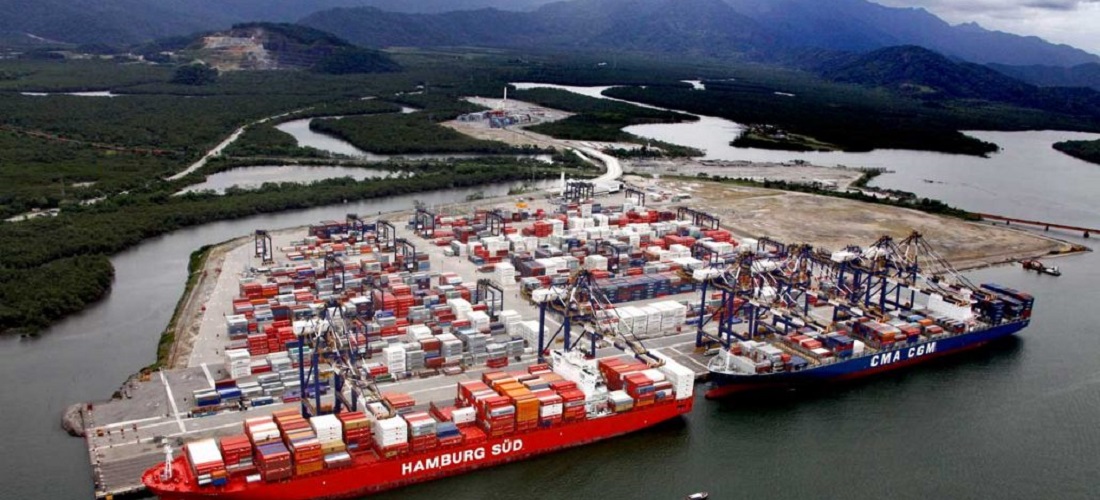
Port of Santos and DP World fight for area
Oct, 28, 2019 Posted by Sylvia SchandertWeek 201944
According to the newspaper Valor Econômico, DP World and the Santos Port Authority are in a dispute that could change the boundaries of the company’s private terminal in the Port of Santos.
Headquartered in Dubai, United Arab Emirates, and operating in 40 countries, DP World accuses the Santos authority of arbitrarily trying to change the layout of its terminal, making expansion projects that would generate billionaire investments in the region impossible.
“Instead of supporting DP World projects, the port is working against us. We can only guess the reasons for this, because the port authority did not talk to us [about the change],” DP World Santos CEO Dallas Carlyle Hampton told Valor.
The Santos Port Authority, which is responsible for port management and planning, says the terminal design impairs the development of the Santos complex as a whole. Therefore, it proposes a change in boundaries that would make room for other developments in the surrounding area. “No interference from a private terminal can outweigh current and potential qualities of the public port,” says the technical note prepared by the port authority on the subject, which states that the change in layout “cannot compromise DPW’s operation”.
The current limits of the private use terminal were set in a 2014 contract signed by the National Agency for Water Transport (Antaq). Before that, the terminal already had a term in place, which had a different layout. The deal, however, had to be reworked to bring it into line with the 2013 New Port Law – when the current design was established.
Now the port authority is asking for a review of the boundaries between the public area and the TUP – which would, in effect, return to the public port a piece of the waterway area that would be inside the DP World terminal. According to the agency’s technical note, these areas would be used for different purposes, such as the expansion of berths from other terminals and the expansion of the access structure in the region, where a railway line passes.
The change was proposed by the company Docks in a document sent to the Ministry of Infrastructure on September 16. After being sought after, the Ministry of Infrastructure reported in a statement that the process is under review by the port secretariat, linked to the portfolio, after the port authority’s statement on the issue, and that there is no final decision.
DP World’s Hampton says the company only learned of the possible review a few days ago, when the change was about to be signed, he said. The company then asked for a hearing to try to stop the measure – which had not yet materialized until the report was completed. “If the change of route occurs, I do not know if we will be able to convince the group to invest another penny in Brazil. As with every business, we can go to court to seek compensation, but we don’t want to resort to it, that would be the last resort,” he says.
The company Docks said in a statement that “the defining of the organized port area will not make any new business in the Santos port complex unfeasible. On the contrary, in line with its strategic objectives, SPA [Santos Port Authority] understands the port as a business unit and will foster ventures regardless of their legal nature.”
According to the president of DP World, the route being proposed would block the realization of two projects, which together could add up to investments of US$350m.
The first of these would be the construction of a bulk cargo dock – possibly for grain transportation. The second would be for the movement of LNG (liquefied natural gas). The projects, he says, are not yet closed and would need federal authorization, but there are already studies and talks with potential partners underway.
Antaq said in a statement that the docks company has always been aware of the construction of the terminal in that location and that “the matter was an exhaustive subject in meetings” of the board. The regulator also said that, before approving a Private Use Terminal (TUP), an analysis is made of the impacts on port operation.
Source: Valor
-
Ports and Terminals
May, 13, 2019
0
Codesp considers seven emergency dredging offers
-
Shipping
Jun, 30, 2021
0
Record-breaking agribusiness exports would be higher if not for the lack of containers
-
Automotive
Apr, 14, 2021
0
Special report: Covid-19’s impact on Brazil’s vehicle and autoparts sectors
-
Mar, 08, 2022
0
Argentine mills assure that there will be no wheat shortages


